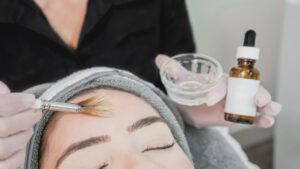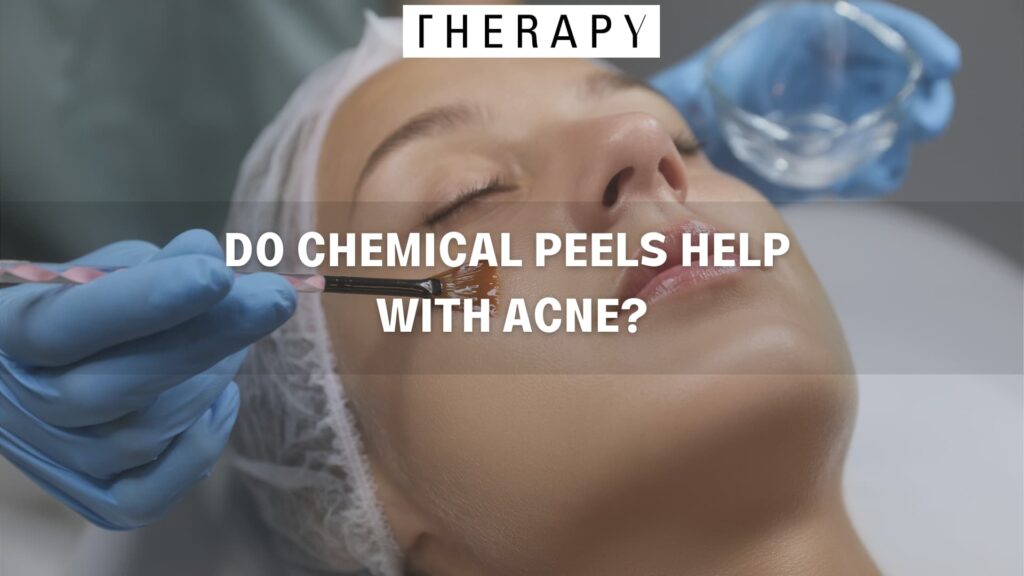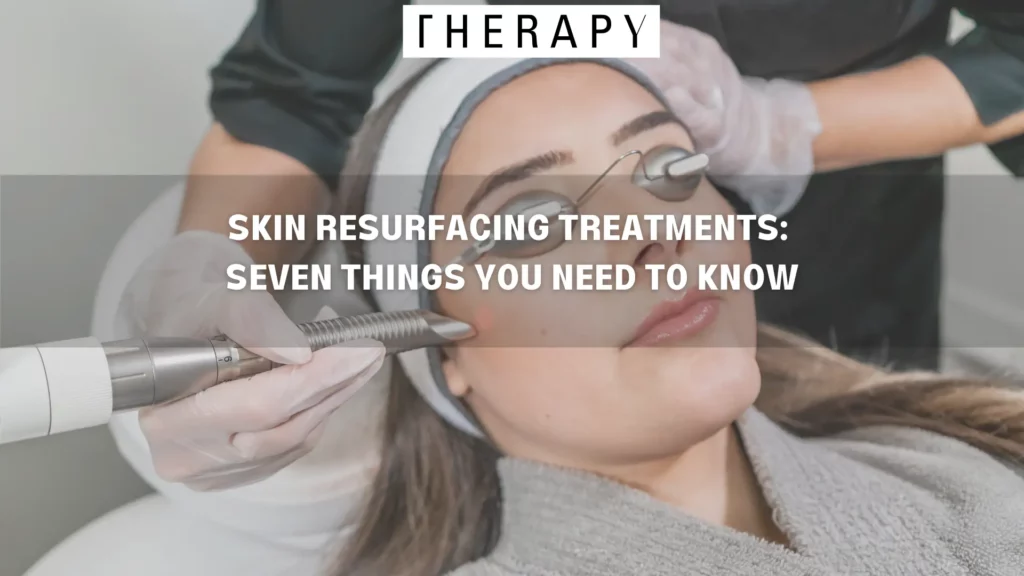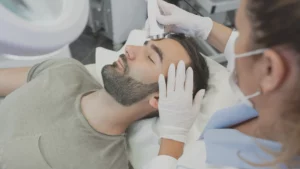Every year, millions of people seek solutions to the persistent issue of acne. While countless products claim to banish blemishes, there’s one method that’s gaining traction: chemical face peels. But do chemical peels really work as well as advocates claim?
At Therapy Hair Studio, our team knows how vital a clear complexion is to your self-confidence and appearance. We want you to look stunning wherever you go, and chemical peels can clear up breakouts and acne scars. Keep reading to learn about this revolutionary new treatment for acne.
First Things First: What Is Acne?
Your skin is covered in pores, and they sometimes become filled with dirt, oil, or dead skin cells. When pores become clogged, the skin develops red, swollen bumps called acne. Acne can show up in different styles:
- Blackheads: Little black dots on the skin, looking like dirt stuck in your pores
- Whiteheads: Tiny white bumps filled with a white substance
- Pimples: Red pustules with a white top filled with pus
- Cysts: Larger, painful lumps beneath the skin’s surface, which might be filled with pus
- Nodules: Hard bumps under the skin, often painful to touch
Understanding Chemical Peels
A chemical peel is a skincare treatment that uses a solution to improve the texture and appearance of the skin. When applied to the face, this solution causes the top layer of skin to exfoliate and eventually peel off. As this outer layer sheds, a new layer of skin emerges. Most of the time, this new layer is smoother and less blemished.
The term “chemical” might sound intense, but many peeling agents come from natural sources. The depth and intensity of the peel—how deep it penetrates the skin—can vary. Some peels are gentle and only target the very surface, while others go deeper to address more stubborn skin concerns. Regardless of the type, the goal of a chemical peel is to refresh and rejuvenate the skin’s appearance.
How Do Chemical Peels Treat Acne?
When it comes to acne, our skin often needs a little extra push to clear out impurities and pave the way for clearer days. Chemical peels offer that push in a few key ways:
- Exfoliation: At its core, a chemical peel promotes exfoliation. Encouraging the skin to shed its top layer helps remove dead skin cells that could be clogging pores.
- Bacteria Reduction: Some chemical solutions used in peels have antibacterial properties. This means they can target and reduce the bacteria that contribute to acne breakouts.
- Unclogging Pores: Acne often sprouts from clogged pores filled with oil, bacteria, and dead skin cells. Chemical peels help by deeply cleaning and unclogging these pores, giving them a fresh start.
- Reducing Inflammation and Redness: Some chemical peels contain ingredients that soothe the skin and reduce inflammation, which can be especially beneficial for inflamed, angry pimples.
- Decreasing Appearance of Scars: For those who’ve had acne, the aftermath can sometimes be as challenging as the breakouts themselves. Chemical peels can assist in fading post-acne marks and scars, creating a smoother and more even-toned appearance.
- Regulating Oil Production: Excessive oil can be an acne trigger. Certain peels help balance the skin’s oil production, ensuring it’s neither too dry nor too oily.
Who’s a Good Candidate for a Chemical Peel?
 When done by an experienced and knowledgeable skin care professional, a chemical peel can help with the following skin conditions:
When done by an experienced and knowledgeable skin care professional, a chemical peel can help with the following skin conditions:
- Acne cysts
- Acne scars
- Age spots
- Hyperpigmentation (dark spots on the skin)
- Melasma (patches of brown or blue-gray patches or freckle-like spots on the skin)
- Sun-damaged skin
- Fine lines and wrinkles
On the other hand, certain patients should avoid having chemical peels to treat acne, including:
- Patients with current or previous bacterial or fungal infection
- Patients taking medication to treat these infections
- Patients who’ve used a prescription medication to treat acne within the last year
- Patients with a history of irregular scarring or keloids
- Patients with certain immune-related diseases
- Patients who are pregnant or breastfeeding, just to be safe
Consult a dermatologist or skin care professional before undergoing a chemical peel to make sure it’s safe and won’t further damage your skin.
Sick of Acne? Therapy Hair Studio Can Help
Chemical peels are just one of the many services we offer at Therapy Hair Studio. Our highly skilled and experienced team knows that clear skin and the right haircut are essential elements of your personal style. We can help you clear up those blackheads or whiteheads, along with any acne scars, to rejuvenate your skin. Call (713) 355-4247 today or complete our contact form to schedule an appointment.
Related Posts:








